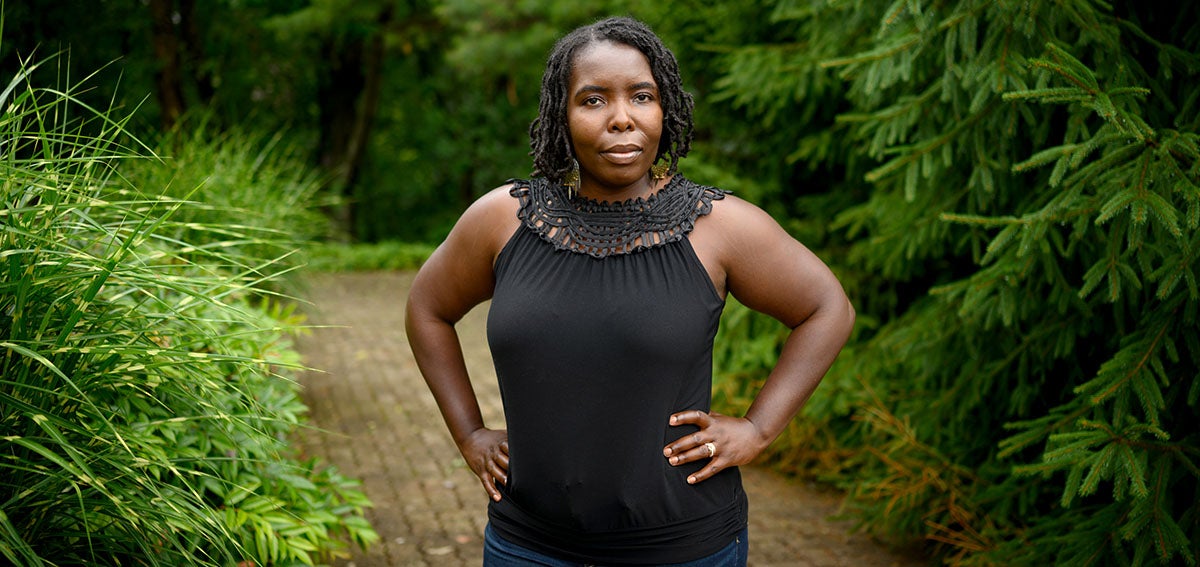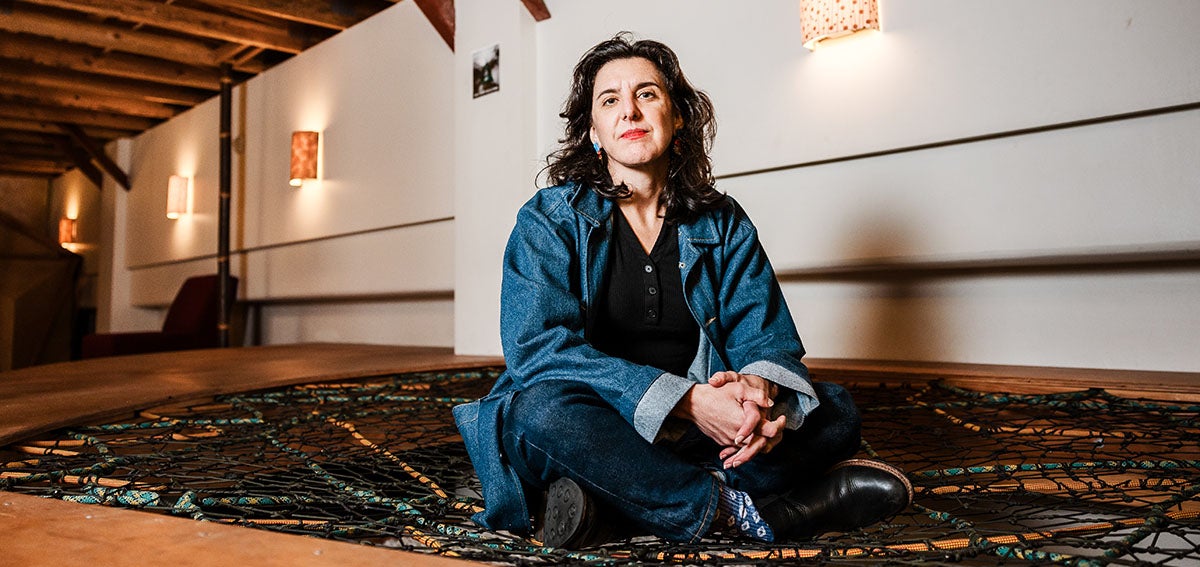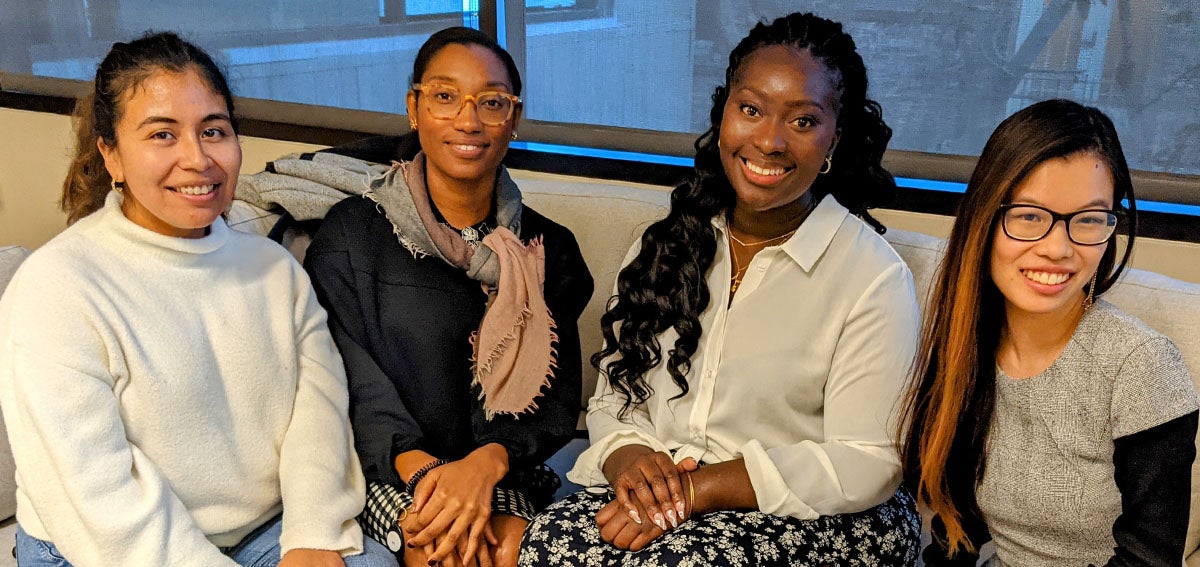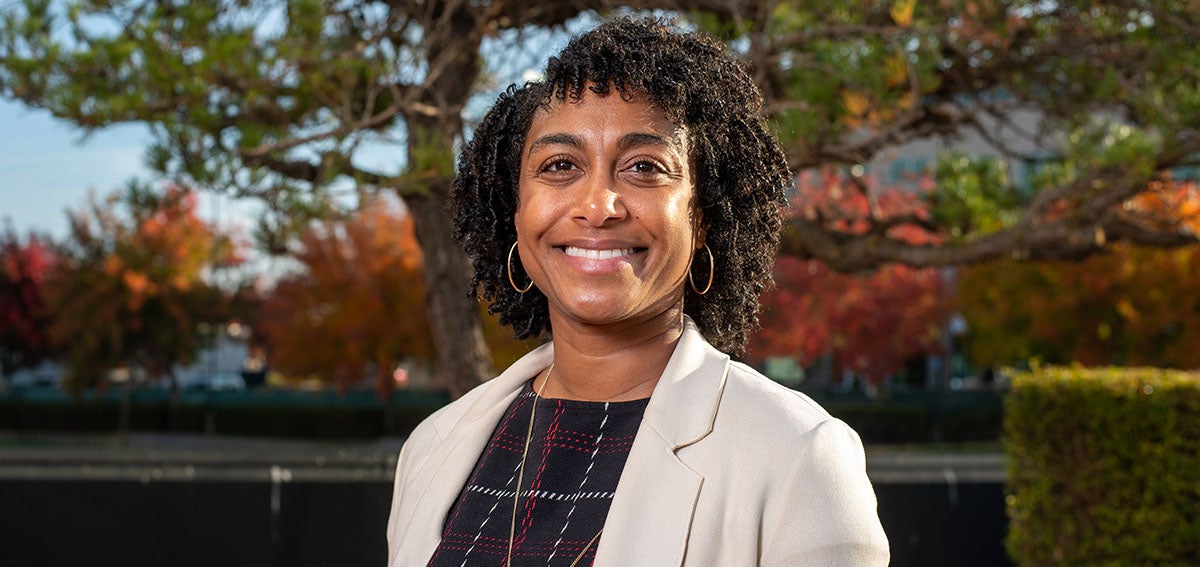
Throughout the pandemic, communities of color, often filled with essential workers returning home to crowded households, have been contracting and dying from COVID-19 at the highest rates in the country. This year, Public Health Advocates, a California organization that advances policies to reduce health disparities, created an initiative to respond to the deep-rooted inequities brought into focus by the pandemic.
The initiative advocates for policies, programs, and resources to help communities recover from the pandemic and create long-term solutions to improve health equity. Public Health Advocates formed a steering committee of California public health and health equity leaders to help set the initiative’s priorities and strategies and establish a game plan to implement solutions. The steering committee named the initiative California COVID Justice: Recovery, Response and Repair.
I recently spoke to Flojaune G. Cofer, PhD, MPH, senior director of policy at Public Health Advocates, about the initiative and her hopes for how California COVID Justice will help historically underinvested communities. Our conversation has been condensed and edited for clarity.
Q: The COVID-19 pandemic has affected people’s lives in so many ways, especially in low-income communities of color. How did California COVID Justice determine which issues to focus on?
A: Our steering committee includes leaders and service providers from community-based organizations (CBOs), policy advocates, local elected officials, and public health experts. They each bring a critical perspective on what communities need to recover. Together we decided our overarching frame would be racism as a public health crisis. Because structural racism plays a huge role in health disparities and policy issues across the board, the steering committee wants to be an antiracist response to these issues.
Our policy priorities include housing and homelessness, economic supports, as well as building health equity by empowering CBOs and fully funding public health departments.
In terms of housing, we want to see rental debt eliminated and eviction moratoriums extended. If people have been unable to pay rent for 18 months, they will never be able to dig themselves out of that hole. We’d like to decriminalize homelessness and increase the availability of housing. People experiencing homelessness can lose what little property they have when the police force people to quickly abandon encampments.
Our steering committee supports the expansion of programs that give money directly to individuals and families. These programs have been gaining steam since former Stockton mayor Michael Tubbs introduced a guaranteed income program in his city in 2019. During the pandemic, the federal government and many state governments, including California’s, sent stimulus checks to families — highlighting the advantages of direct payments that residents can spend on what they need most. We want to see guaranteed income programs expanded, especially for low-income communities of color. We see these payments as a small part of the reparations due to Black Americans and other historically marginalized communities.
The California COVID Justice steering committee is also working on establishing an equity framework that includes criteria defining how state budget dollars can be expended in ways that purposefully and specifically promote racial equity. The pandemic showed who is most at risk of getting and dying of COVID and highlighted the need for more equitable distribution of state funding.
Q: What is California COVID Justice doing at the state and local levels to address its policy priorities?
A: At the state level, the equity framework for state funding is a big priority, and it is still in the early stages of development. In the shorter term, we support stronger housing protections and rent relief to prevent evictions. California’s eviction moratorium is set to end September 30, and we support its extension. While the state promised to pay back 100% of rent for low-income renters impacted by COVID, state and local governments need to do a much better job directing this relief to vulnerable residents who are not aware of it or face barriers to accessing it. This will require improved communication, investing in community-based organizations with experience connecting community members to critical resources, and creating a more inclusive, culturally accessible application process.
“This is an incredible opportunity to address issues like housing and homelessness, health equity, and economic support on a local level.”
—Flojaune G. Cofer
At the local level, we want to help communities advocate for how federal dollars for pandemic recovery are being spent. The $1.9 trillion American Rescue Plan Act, signed by President Biden in March, includes allocations for states and local governments. California’s cities and counties are receiving $16 billion in direct allocations that can for the most part be allocated however cities and counties want.
This is an incredible opportunity for local residents and CBOs to make their priorities known. It is an opportunity to address issues like housing and homelessness, health equity, and direct economic supports and to be sure that there is transparency and accountability in how the funds are spent. We’ve developed advocacy tools and begun hosting webinars to help people and their CBO partners better understand this historic opportunity to address the issues that are most important to them and to promote health and racial justice.
Q: During the pandemic, many CBOs were critical to recovery efforts and helped out with vaccinations, testing, and filling gaps for community members to access resources. Do you think there’s a new recognition of the importance of community-based organizations and the need to continue funding them?
A: CBOs are critical, and the pandemic has made that clearer than ever. CBO staff are local experts who see the challenges their communities face and work to eliminate barriers. They are trusted messengers who have relationships with individuals and communities that are difficult for government agencies to reach.
CBOs have run testing and vaccine sites and mobile health clinics. They have provided food and medicine. They have reached out to community members to let them know about economic and housing relief. Let’s continue investing in these CBOs so they can grow and become more sustainable. California needs well-resourced CBOs to move toward health equity and to be prepared to respond to future emergencies.
Q: What would you want to see California leaders do differently in their response to a future pandemic?
A: Let’s learn from the glaring lessons of the COVID pandemic. Let’s never again find ourselves unprepared for a crisis that we know will come. The state and every city and county should have an emergency response plan, and it should be updated regularly. Let’s make sure that state and local governments are ready to reach out to high-risk communities so they can respond to community needs and priorities. Let’s make sure that trusted messengers are in place and that community centers have already been identified as places where testing and other resources will be available.
Being prepared for a future pandemic or another emergency requires fully funding our local public health departments. Their staffing has decreased dramatically since the 2008 recession, making it extremely challenging for them to be prepared to prevent and respond to new threats in communities. We support increased ongoing funding for local public health departments.
We are at a historic moment. More than ever, people understand the importance of public health. People understand the importance of investing to prevent and be prepared to address future crises. Now is the time to invest in public health. Now is the time to invest in health equity and racial justice.
Perhaps the most important aspect of California’s recovery from the COVID pandemic is addressing the social and economic factors that limit people’s ability to be healthy. These inequities that are greatest in our Indigenous, Black, and brown communities. It is time to establish the policies and programs that are needed to turn the promise of health and racial justice into a reality.
CHCF is a cofunder of the California COVID Justice project.
Authors & Contributors

Lydia Chávez
Lydia Chávez is founder and executive editor of Mission Local, a news site covering San Francisco’s Mission District that began at the University of California, Berkeley, in the fall of 2008 and became independent in the summer of 2014. Lydia started as a reporter for the Albuquerque Tribune, later moving on to Time magazine and the Los Angeles Times. Later at The New York Times, she served as El Salvador and South American bureau chief. She has written op-eds and Sunday magazine pieces for The New York Times and the Los Angeles Times. She holds a bachelor’s degree in comparative literature from Berkeley, a master’s degree from Columbia University’s Graduate School of Journalism, and advanced degrees in Art History from the Courtauld Institute of Art in London. After 29 years as a professor at Berkeley’s journalism school, Lydia moved to emeritus status in 2019. At Mission Local, she continues searching for the keys to a sustainable model for local news coverage.

Justin Merriman
Justin Merriman is a freelance photojournalist who has traveled the world to cover politics, wars, natural disasters, and civil unrest, as well as assignments throughout the United States. His work has appeared in leading national publications and he has received multiple awards. Justin is a founding member of American Reportage, a collective of photojournalists documenting the American experience. He is based in Pittsburgh, Pennsylvania.





